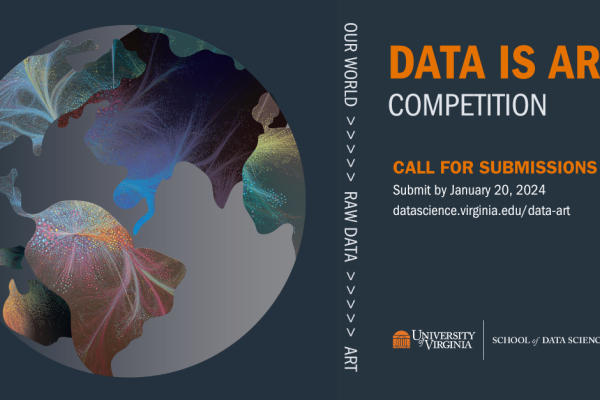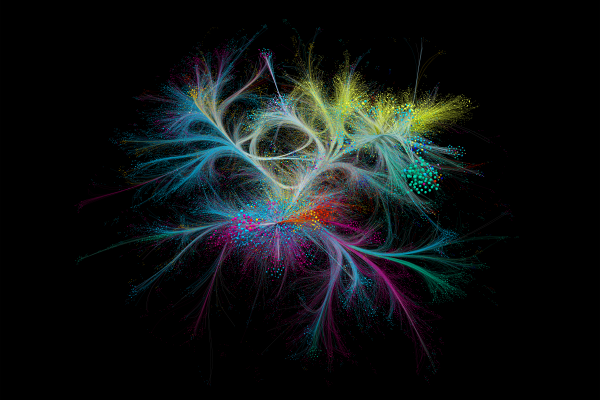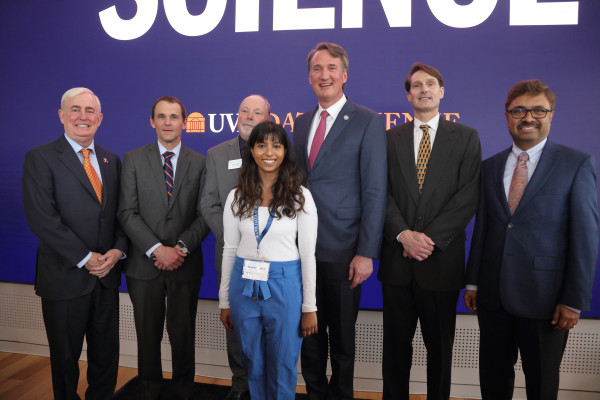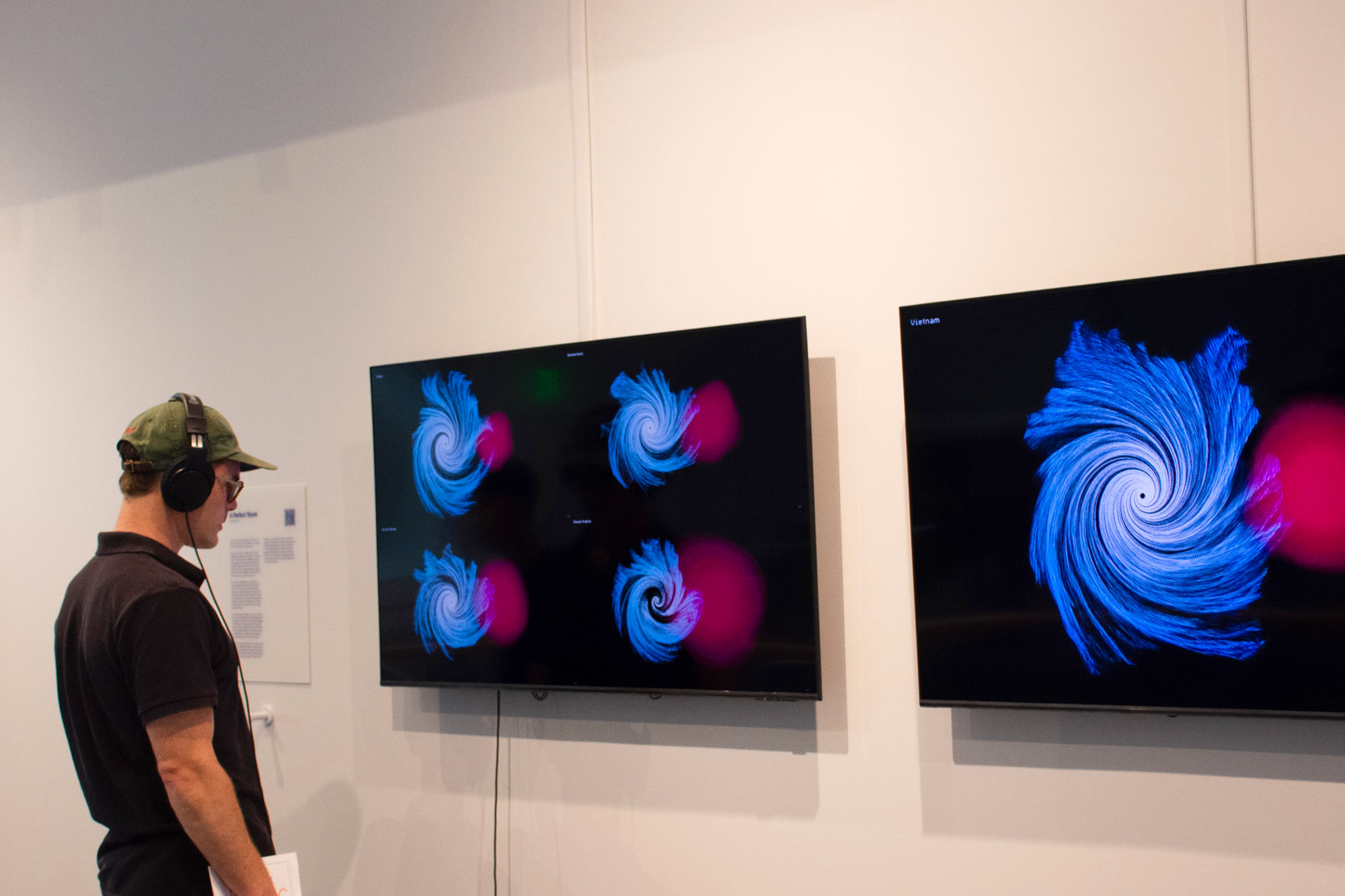
Data Art Competition Draws More Than 130 Submissions
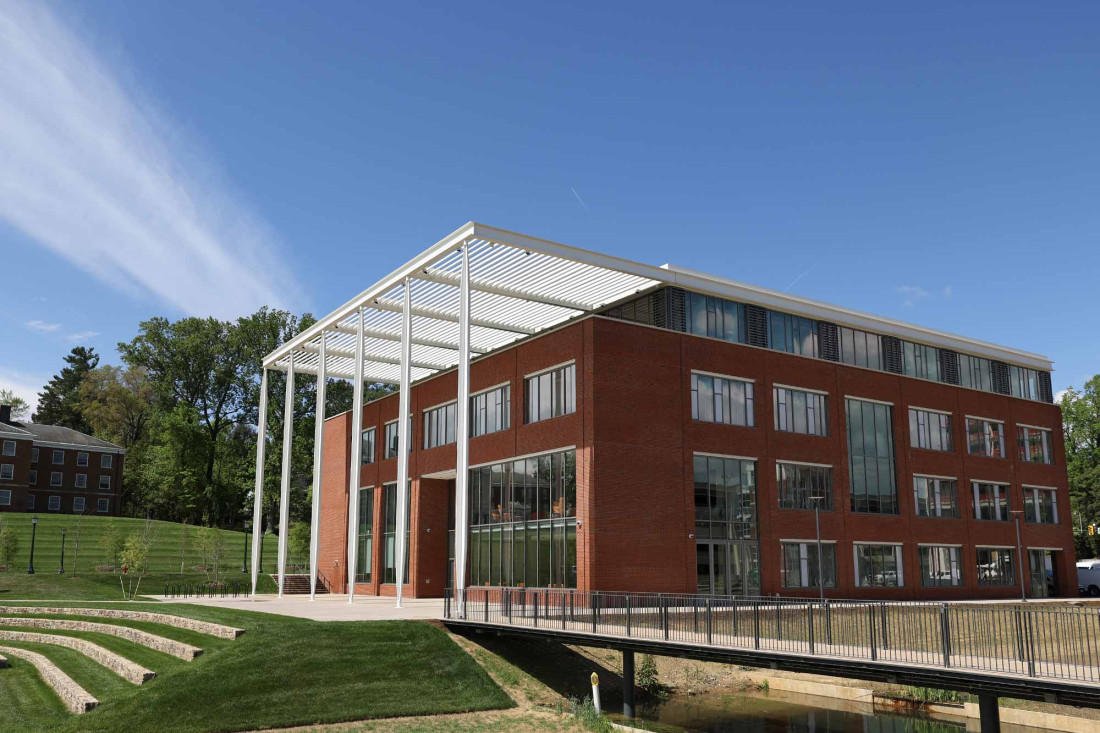
Data has the power to tell captivating stories and reveal hidden insights, often in aesthetically compelling ways. In celebration of this idea, the University of Virginia’s School of Data Science hosted an art competition commemorating the opening of its new building and inviting participants from across the world to tell unique stories, transforming raw data into art.
“Our event aimed to empower storytelling at the intersection of data science and artistic expression, encouraging innovative multimedia that resonate with audiences,” Alex Gates, assistant professor of data science, said.
The competition challenged artists to create visually striking and thought-provoking data-inspired visualizations. Entries needed to present information that not only evoked emotion, but captured the underlying essence of the data. Artists were encouraged to think outside the box, experiment with innovative design techniques, use mixed media and push the boundaries of data visualization.
Eight finalists were selected from the 130 submissions received from artists in nine different countries. Finalists were recognized at a public event earlier this month. Julia Daser and Pepi Ng from New York’s The New School won the grand prize.
The finalists’ entries, based on the competition’s theme of “Our World,” included “Reef Generations,” UVA music professor Matthew Burtner’s multimedia composition using oyster reef data, and “LA AQI: 1980-2024,” Charlottesville artist Steve Haske’s graphite-on-paper spiral representation of the air quality index ratings of Los Angeles over four decades.

Competition organizers also polled the public for a People’s Choice Award, collecting more than 800 votes. The winner of the award, who was also selected for an honorable mention, was 2019 UVA alum Peter Cybriwsky’s real-time generative and data art installation, titled “Nebulae.”
Cybriwsky, who said he was “excited” to have his work on display, intends for the piece to visualize oft-overlooked environmental changes in Charlottesville, including brightness, humidity, temperature, barometric pressure and CO2 levels. The display included installing sensors on the building’s roof.
The School of Data Science intends to hold future data art competitions, as well as utilize the building’s exhibition space for regional artist showcases and collaborations with K-12 art programs. The eight finalists’ work will remain on display in the School of Data Science building through the end of the calendar year. The public is encouraged to visit, explore the open spaces, and interact with the art on display and the building’s permanent data science sculpture.
